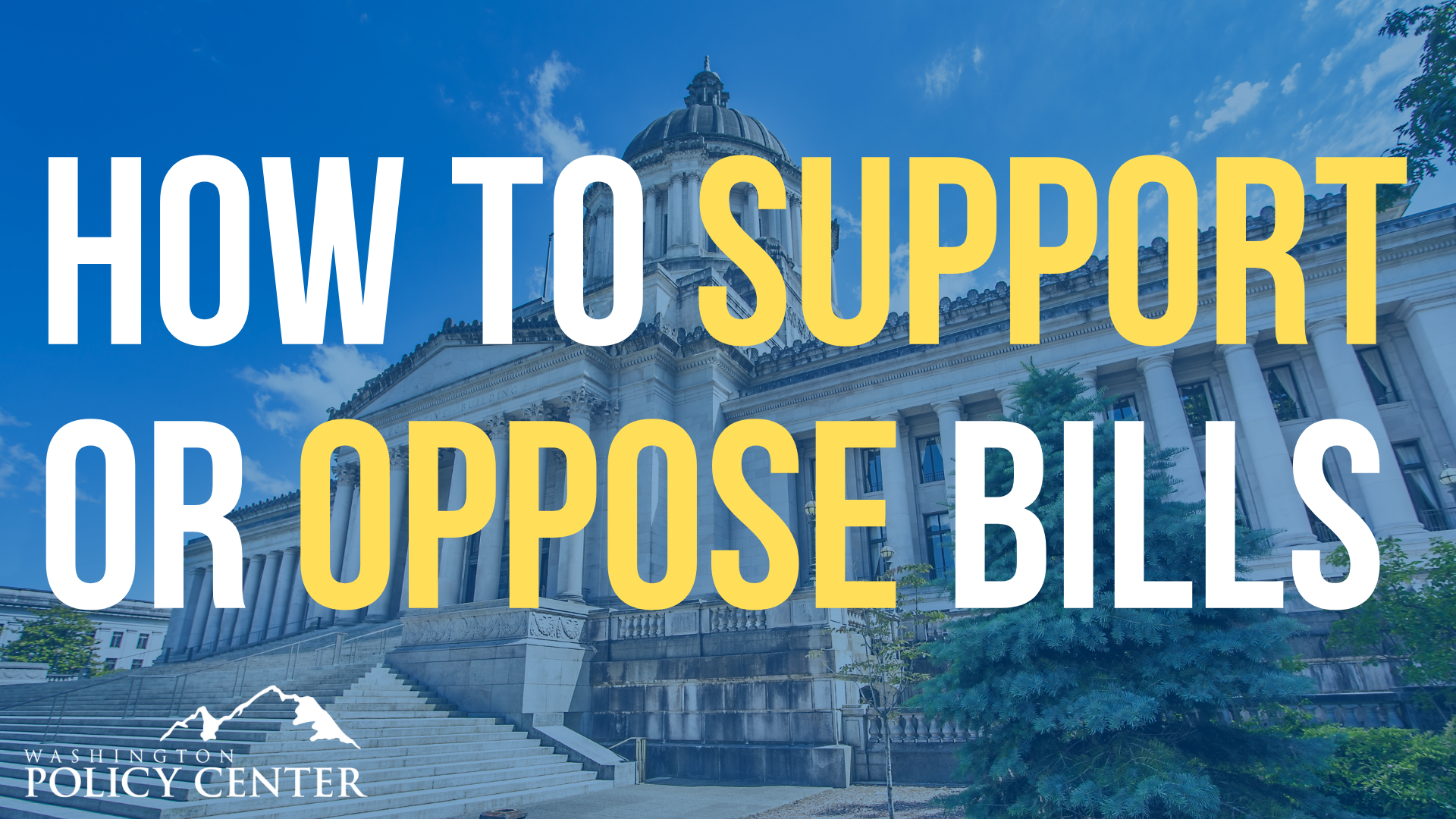Key Findings
- The Medicaid expansion in Washington state was done with a one-line budget gimmick. The 2015 legislature must again face the long-term impact of what the Medicaid expansion means for the people of our state. Elected officials in Washington owe state taxpayers a formal, specific debate and a clear floor vote on whether to continue the expansion.
- Washington state taxpayers will see an added cost of an additional $533 million ($383 million plus $150 million) per year because of the Medicaid expansion.
- The tragedy is that Medicaid provides low-quality health insurance. A recent study comparing thousands of patients with similar health and socio-economic backgrounds found that uninsured patients actually did better clinically than those enrolled in Medicaid.
- There is no controversy that government exists to provide a safety-net for people who are truly in need. Medicaid should be a temporary insurance plan with the goal of transitioning enrollees into the private market.
Background
The Affordable Care Act (ACA), or Obamacare, became law in 2010. The foundation of the ACA is the individual mandate which requires every adult, age 18 and over, to purchase health insurance or pay a penalty to the IRS. Accompanying the individual mandate is the employer mandate which requires every company with 50 or more employees to provide health insurance or pay a penalty.
In 2012, the U.S. Supreme Court ruled the mandate “penalty” is allowed under Congress’ power to levy taxes. Consequently, the Court upheld the law as constitutional. The Court also ruled that the Medicaid expansion in the ACA should be decided voluntarily by each individual state, not imposed on the states by the federal government.
From a budget standpoint, public money spent on the ACA goes to two programs – the Medicaid expansion in states that accept it and the taxpayer subsidies given out through the health insurance exchanges. The expanded Medicaid program now includes any adult who earns less than 138 percent of the federal poverty level (FPL). The traditional Medicaid program provided health insurance for families with children who earn less than 133 percent of the FPL, for the disabled and for some long-term care patients.
The incentive for a state to accept the expanded Medicaid program is the federal government’s offer to pay 100 percent of the expanded costs for the first three years, then decreasing its contribution on a sliding scale over three years to 90 percent of the expanded costs. This is in contrast to the traditional Medicaid program in which the federal government and the states share the costs more or less equally. To date, 26 states, including Washington, have accepted the expanded Medicaid program under the ACA.
Expnded Medicaid in Washington state
In 2013, legislators and the governor in Washington state decided to accept the ACA’s expanded Medicaid program. A formal vote was not taken, however.
Instead, the expansion was placed as a line-item in the 2013-2015 budget and was approved by both Democrats and Republicans. Proponents of the expansion argue that several existing Washington state health care programs could be rolled into the Medicaid expansion and be totally paid for by the federal government, thus freeing up state money to be spent in other areas of the budget.
The total amount of expanded Medicaid spending in the 2013-2015 budget was $351 million, with $262 million going to the state Health Care Authority, $77 million to the Department of Social and Health Services, $8.3 million to the Department of Health, $2.2 million to the Department of Corrections and $1 million to the Department of Labor and Industry.
In 2012, the traditional Medicaid program cost $7.5 billion in Washington state and the federal government paid about 50 percent of this cost. Approximately 1.36 million Washingtonians were enrolled, which results in an average cost of $5,550 per person overall, and $2,775 per person in Washington state funds per year.
Enrollment in the expanded Medicaid program began October 1, 2013, and continues with an open enrollment. In other words, people can sign-up at any time. According to the Washington State Health Benefit Exchange website, 285,275 people had enrolled in the expanded Medicaid program as of April 23, 2014. There is no clear record of how many of these new enrollees were in the groups previously covered exclusively by state programs that state officials simply shifted to Medicaid. It is also unclear how many of these new enrollees were previously uninsured.
An additional 138,000 people who were eligible but not enrolled in the traditional Medicaid also signed up. These additional “welcome mat” or “coming out of the woodwork” people were expected because of the large Medicaid advertisement campaign. The total number of people who are eligible, but not enrolled, in the traditional Medicaid is unknown.
Based on 2012 costs, the “welcome mat” enrollees will cost Washington taxpayers an additional $383 million per year. The total cost of the expanded Medicaid program will be $1.5 billion per year, with Washington taxpayers ultimately responsible for $150 million per year in 2012-dollars. So Washington state taxpayers will see an added cost of an additional $533 million ($383 million plus $150 million) per year because of the Medicaid expansion.
Policy analysis
When traditional Medicaid began in 1965, Congress assumed the program would remain limited because state legislatures would be careful about increasing the tax burden on their own citizens. The exact opposite has happened. State lawmakers have doubled-down on Medicaid simply because of the extra federal money.
If a state spends a dollar on education, it gets a dollar’s worth of education. If a state spends a dollar on traditional Medicaid, it actually gets two dollars to spend because of the federal match. The federal matching formula actually drives spending, rather than controlling it. Consequently, Medicaid’s cost has exploded and it is now one of the top three budget items for every state, crowding out needed funding for other programs.
From a policy standpoint, the distinction between federal money and state money is misleading, because Washington state taxpayers are also federal taxpayers. There is no safety-deposit box of federal money designated for Medicaid. The program is a pay-as-you-go entitlement. So even though the federal government pays 100 or 90 percent of new costs, any expansion of Medicaid in Washington state must ultimately be paid by state taxpayers. Higher federal taxes will be paid by state taxpayers or the federal debt will be passed on to our children. Although our state legislators want to balance the state budget with federal dollars, our own state taxpayers will be forced to pay for the ACA’s Medicaid expansion.
The federal government is running unsustainable budget deficits and has an enormous national debt. The increasing costs of Medicaid are unsustainable. It is hopeful, and perhaps naïve, to assume the federal government will continue to pay 90 percent of the Medicaid expansion costs. Medicaid has traditionally been a federal and state partnership. It is likely the federal government will eventually place a greater financial burden on the states to fund the expanded Medicaid program.
The real tragedy is that Medicaid provides low-quality health insurance. Proponents will say that at least enrollees have health insurance, yet it is not fair to force millions of Americans into a poor insurance plan. Many studies, including the randomized, controlled study from Oregon, have shown Medicaid is no better than and, in many cases, worse than not being insured. Supporters of Medicaid argue that Medicaid patients are sicker than other patients when they enroll. The Oregon study, however, compared thousands of patients with similar health and socio-economic backgrounds. The researchers found the uninsured actually did better clinically than those enrolled in Medicaid.
Medicaid pays doctors and other providers only 40 to 60 percent of what private insurance pays, depending on specialty. The number of doctors who cannot afford to treat Medicaid patients is increasing. They are simply unable to pay their overhead costs on what Medicaid reimburses. This is causing a severe access problem for our existing Medicaid patients. The Medicaid expansion will only make this access problem worse. There is a philosophy that poor treatment reimbursement is better than uncompensated care. Yet as Medicaid crowds out private insurance, providers will be forced, at some point, to restrict the number of inadequately-reimbursed patients they treat.
Proponents of Medicaid argue the Keynesian idea that expanding entitlements and spending more taxpayer money actually grows the economy, not realizing that all public money has to be taken out of the private sector first. It is unclear how increasing taxes or borrowing against future generations can increase the financial well-being for states and the nation.
As an entitlement, Medicaid discourages work. It also discourages a worker from advancing to a better paying job and earning too much money to qualify for free health care. Medicaid has a “crowd-out” affect on private insurance. Once health insurance is offered for free, or at minimal cost to the consumer, people make the logical economic decision to switch to taxpayer-provided insurance.
The “welcome mat” or “woodwork” enrollees will be a direct burden on Washington taxpayers with the state responsible for 50 percent of the cost. The higher costs in the traditional Medicaid program are a direct consequence of the ACA’s expansion of the entitlement.
The Medicaid expansion in Washington state was done with a one-line budget gimmick. The 2015 legislature must again face the long-term impact of what the Medicaid expansion means for the people of our state. States that decide against expansion will enjoy more sustainable budgets and a more robust private insurance market. Elected officials in Washington owe state taxpayers a formal, specific debate and a clear floor vote on whether to continue the expansion.
Meaningful Medicaid Reforms
There is no controversy that government exists to provide a safety-net for people who are truly in need. We have a moral obligation to help low-income individuals get health care. Unfortunately, the ACA simply expands the old Medicaid program without any new ideas or reforms. The existing Medicaid program was already financially unsustainable – the expanded plan only makes this financial crisis worse.
Allow More State Control
Each state has its own characteristics. The federal government should give states more control over their own Medicaid programs. States should be allowed federal waivers to experiment with various policy options. Block grants, instead of defined contribution, pay-per-enrollee funding, should be given to states so they can budget in a predictable and meaningful way. Historically, Democrat and Republican governors alike, have supported this idea as a states-rights issue. More local control would also have a better chance of reducing or eliminating waste, fraud and abuse in the Medicaid program.
Treat Medicaid Patients Like Private Patients
Instead of being forced into a bureaucratically-controlled government insurance plan, Medicaid enrollees should be allowed access to the private market. Consumer-oriented products, such as health savings accounts and high-deductible insurance plans, would give Medicaid patients more control over their health care dollars and health care decisions. There are a number of ways to do this, including defined contributions, premium support, or some form of tax credit or reimbursement. Instead of being segregated into government-run health care, Medicaid enrollees should be allowed to participate in the choices and benefits of the private insurance market, just like other citizens.
Conclusion
Welfare reform was accomplished in the late 1990s with tremendous success. Medicaid reform should be handled in the same fashion. It should be a temporary insurance plan with the goal of transitioning enrollees into the private market. Elected officials in Washington state owe our most vulnerable citizens and our taxpayers a real debate on expanding the Medicaid entitlement.
Click here to download a PDF of this Policy Note.





